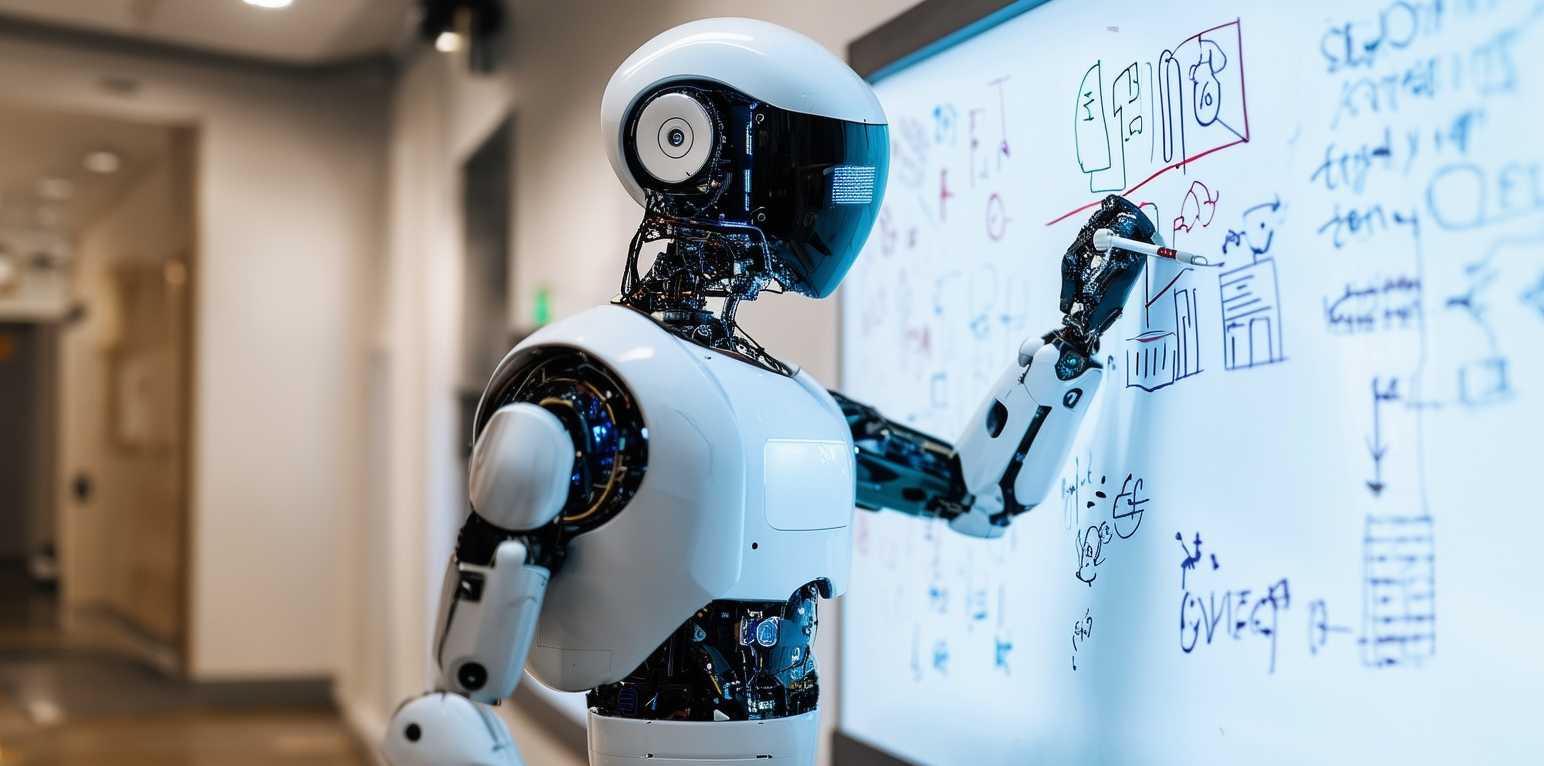AI in Education: Driving Better Student Interaction and Results

Table of Contents
Introduction
The landscape of education is continuously evolving, and one of the most significant recent advancements is the integration of Artificial Intelligence (AI) into the educational sector. AI’s growing presence is revolutionizing how students interact with their educational environment and significantly improving learning outcomes. This article explores how AI is driving better student interaction and results, transforming the traditional educational model into a more dynamic, personalized, and effective system.
The Role of AI in Education
AI technologies, such as machine learning and natural language processing, are being increasingly utilized in education. These technologies bring numerous benefits, including the ability to process vast amounts of data, adapt to individual learning needs, and provide real-time feedback. By leveraging these capabilities, AI helps create a more engaging and effective learning experience for students.
Enhancing Student Interaction
Personalized Learning Experiences
AI-driven adaptive learning platforms are at the forefront of personalized education. These platforms analyze students’ performance data and tailor educational content to meet their individual needs. This personalization ensures that students are neither bored with material that is too easy nor overwhelmed by content that is too difficult. It creates a more engaging learning environment that can cater to diverse learning styles and paces.
Interactive and Engaging Tools
AI-powered educational games and simulations offer interactive and immersive learning experiences. Tools such as virtual and augmented reality applications provide students with hands-on experiences that make learning more engaging and memorable. For example, virtual reality can transport students to historical events or inside the human body, providing an interactive way to explore complex subjects.
Smart Tutoring Systems
AI tutors are revolutionizing the way students receive assistance. These systems provide real-time feedback and support, helping students understand difficult concepts at their own pace. Successful AI tutoring programs, like Carnegie Learning’s MATHia and IBM’s Watson Tutor, have demonstrated significant improvements in student performance by providing personalized tutoring that adapts to each student’s learning progress.
Improving Learning Outcomes
Data-Driven Insights
AI analytics play a crucial role in tracking student progress and identifying learning gaps. By analyzing data from student interactions, AI systems can pinpoint areas where students struggle and suggest targeted interventions. This data-driven approach allows educators to tailor their teaching strategies to better meet the needs of their students, ultimately improving learning outcomes.
Efficient Administrative Tasks
AI can automate many administrative tasks, such as grading and attendance tracking, freeing up valuable time for educators to focus more on teaching and interacting with students. Automated grading systems can quickly assess assignments and provide feedback, ensuring students receive timely insights into their performance.
Early Intervention Systems
Predictive analytics in AI can identify at-risk students before they fall too far behind. By analyzing patterns in student data, AI systems can predict which students are likely to struggle and recommend early interventions. These timely interventions can provide the support students need to succeed, reducing dropout rates and improving overall educational outcomes.
Challenges and Considerations
Ethical and Privacy Concerns
The use of AI in education raises important ethical and privacy issues. Ensuring the security of student data and maintaining privacy are critical concerns. It is essential to implement robust data protection measures and adhere to ethical guidelines to prevent misuse of AI technologies.
Accessibility and Equity
AI has the potential to exacerbate the digital divide if not implemented with accessibility and equity in mind. Ensuring that all students have equal access to AI technologies, regardless of their socio-economic background, is crucial. Efforts must be made to bridge the gap and provide resources to underserved communities.
Teacher Training and Adaptation
For AI to be effectively integrated into education, educators must be adequately trained. Providing teachers with the necessary skills and knowledge to use AI tools effectively is essential. Training programs should focus on helping teachers understand how to incorporate AI into their teaching strategies and leverage its benefits.
Case Studies and Success Stories
Numerous schools and institutions have successfully implemented AI, demonstrating measurable improvements in student interaction and outcomes. For instance, Georgia State University uses an AI-powered chatbot to assist students with administrative tasks, significantly reducing dropout rates. Similarly, the use of AI tutors in various educational settings has shown positive results in student performance and engagement.
The Future of AI in Education
The future of AI in education is promising, with emerging trends and technologies poised to further enhance learning experiences. Innovations such as AI-driven predictive analytics, virtual reality classrooms, and advanced adaptive learning systems will continue to shape the educational landscape. The long-term impact of AI on education includes more personalized, efficient, and effective learning environments that cater to the diverse needs of students.
Conclusion
AI is transforming education by driving better student interaction and improving learning outcomes. From personalized learning experiences and interactive tools to smart tutoring systems and data-driven insights, AI offers numerous benefits that enhance the educational experience. While there are challenges to address, such as ethical concerns and ensuring equity, the potential of AI in education is immense. As AI technologies continue to evolve, they will play a crucial role in shaping the future of education, making it more engaging, personalized, and effective.
FAQ's
AI in education refers to the use of artificial intelligence technologies to enhance learning experiences, personalize education, and improve administrative efficiency.
AI personalizes learning by analyzing student data to tailor educational content to individual needs, ensuring that each student receives the appropriate level of challenge and support.
AI tutors provide real-time feedback and personalized support, helping students understand difficult concepts at their own pace and improving overall learning outcomes.
Yes, the use of AI in education raises privacy concerns, particularly regarding the security and ethical use of student data. It is essential to implement robust data protection measures.
AI improves student engagement by providing interactive and immersive learning experiences, such as educational games and virtual reality applications, making learning more engaging and enjoyable.